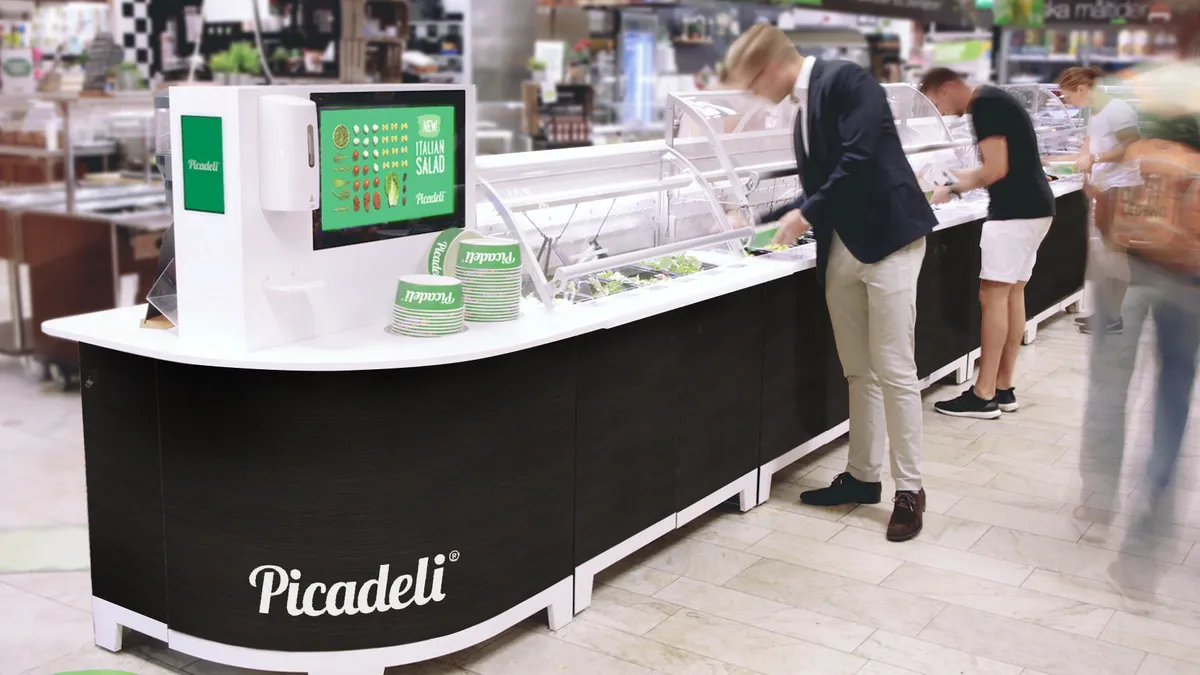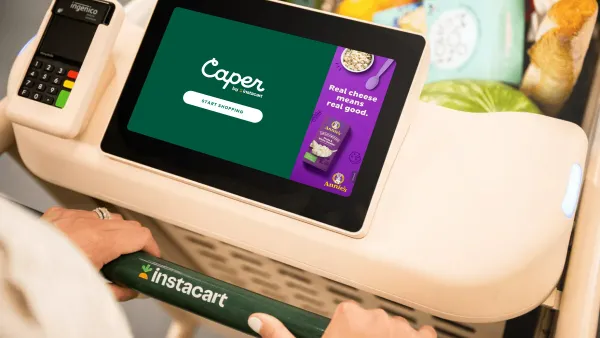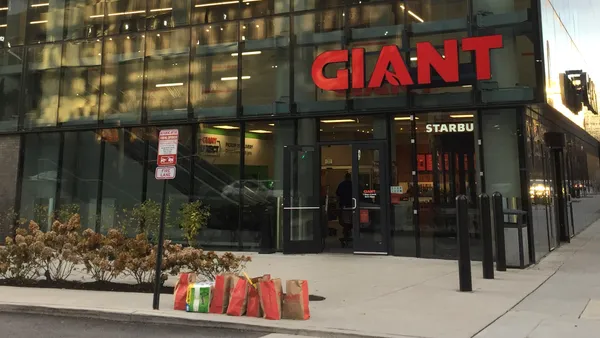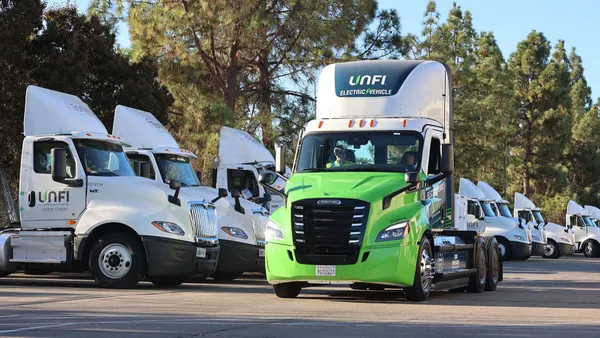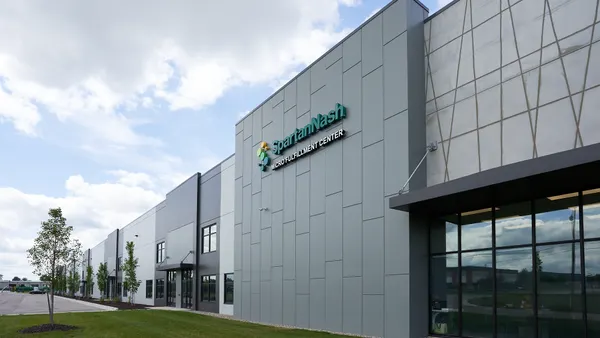Dive Brief:
- Albertsons is piloting artificial intelligence-driven salad bars in six East Coast supermarkets through a partnership with European food technology company Picadeli, according to a press release.
- The grocer has added the internet-linked self-service counters, which stock foods supplied by Picadeli using a platform that optimizes assortment by analyzing consumption patterns, to Safeway, Acme and Kings Food Market stores in Washington, D.C., Maryland and New Jersey. Albertsons is the first U.S. grocer to install the equipment.
- Albertsons is evaluating Picadeli's concept as grocers explore ways to stand out with shoppers by evolving and enhancing their prepared food offerings.
Dive Insight:
To gauge the reaction of U.S. consumers to its concept, Picadeli, which runs salad bars in more than 2,200 grocery stores in Europe, worked with Albertsons to install the equipment in supermarkets in urban, suburban and rural areas, said Patrik Hellstrand, CEO of Picadeli U.S., which was formed to manage the company's expansion across the Atlantic Ocean.
Albertsons installed its first Picadeli unit in a Safeway store in Washington, D.C., in late September, followed by another Safeway in the city a day later. Albertsons also has Picadeli salad bars at Kings Food Markets in the New York City suburbs of Cresskill and Montclair, New Jersey. The other bars are in Acme locations in Fort Lee, New Jersey, and Salisbury, Maryland.
Initial interest by Albertsons shoppers in buying meals from the high-tech salad bars, which are equipped with sensors to detect if food is uncovered and built-in hand sanitizer dispensers, has been promising, said Hellstrand.
The bars replaced conventional salad bars in each store, but prices — $8.99 or $9.99 per pound, depending on the store — have remained the same, Hellstrand said. Picadeli salad bars in the Albertsons stores it is working with each carry about 55 items, Hellstrand said.
"The consumers that we most want to reach are responding really well by essentially voting with their sales and having repeat rates that are higher than we ever expected," said Hellstrand, a former restaurant company executive who is a co-owner of Picadeli's U.S. business.
Picadeli's pitch is that it enables retailers to provide affordable, high-quality prepared foods to customers more efficiently than they can with standard salad bars. The company provides the self-service stations, which sport the Picadeli brand, and supplies all items for the bars through relationships it maintains with food producers.
Picadeli's model also requires less labor than traditional grocery stores salad bars, said Hellstrand. In Europe, the system has translated into higher sales and improved profitability, according to the company.
Products arrive at stores in containers that have QR codes, which store staff scan as they add items to the salad bar. That information allows Picadeli to automatically monitor how long products have been on display and optimize the assortment of foods in each store based on consumption patterns using cloud-based servers.
Picadeli ramped up its U.S. operations at a time when retailers were navigating strict safety restrictions in self-service departments due to the pandemic, and the future of the salad bar appeared to be in question. Now, self-service areas have reopened but retailers are dealing with labor shortages that's spurring them to implement automated solutions.
Picadeli's arrangement with Albertsons represents the first phase of what the Swedish salad bar specialist hopes will be a broad rollout of its system in the United States. The company is looking to strike deals with other grocers and also wants to add its salad bars to foodservice facilities at airports, hospitals, universities and corporate sites across the country, said Hellstrand.



